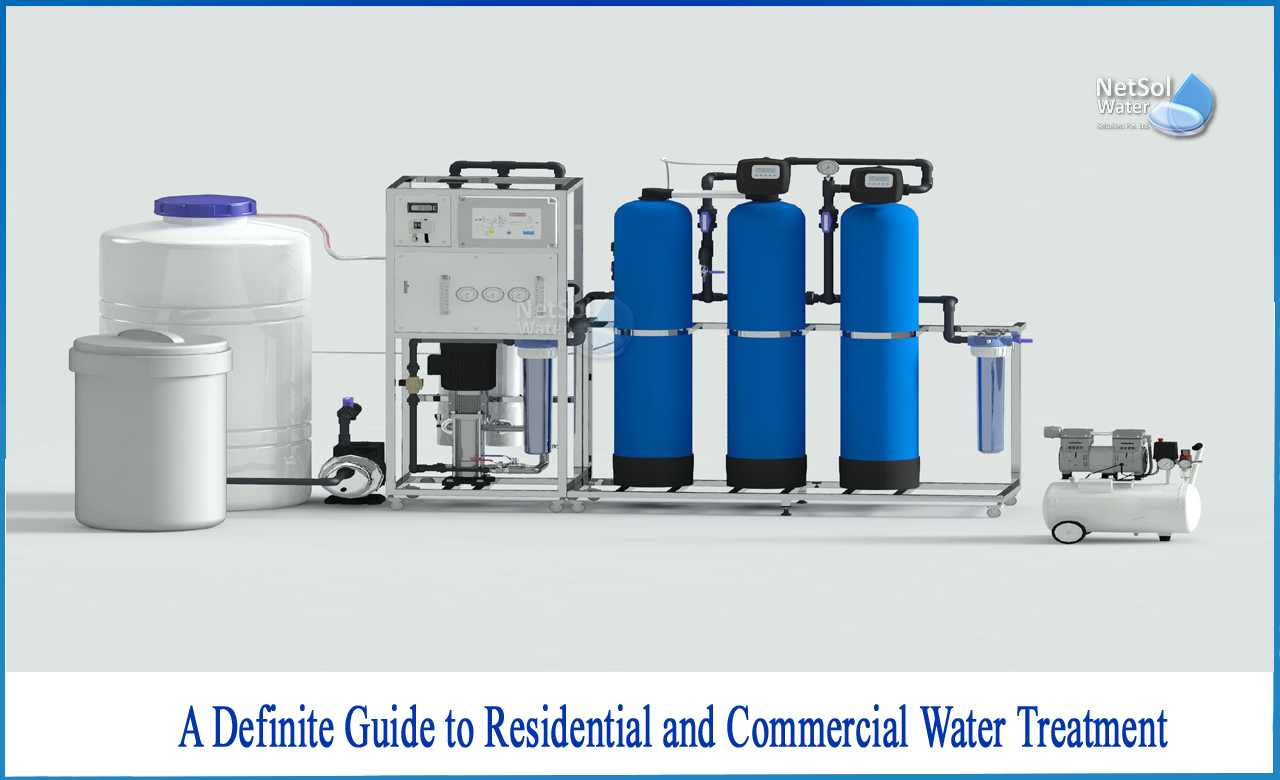A Definite Guide to Residential and Commercial Water Treatment
To accomplish and meet commercial or residential water treatment standards, it is vital to understand the use for which the water will be used and what types of impurities may be detrimental if left untreated. If the water will be used for several applications, it is critical to choose the most demanding application and its requirements to ensure that the water treatment system's design and performance satisfy the standard.
Commercial water purification uses high-flow rates to treat large volumes of water. The type of water treatment used in a system is determined mostly by the desired purity level of the final water make-up.
What is the goal of Water Treatment in Residential or Commercial area?
The primary goal of commercial or residential water treatment is to avoid corrosion, scaling, and biological growth, as well as to assure compliance with water disposal requirements.
To fulfil the specified water quality for the business or residential process, steam production, or incorporation into a food or beverage, a commercial or residential water treatment system typically employs many types of processes in series or parallel.
There are various sorts of techniques that are typically used in the commercial or residential water treatment business:
• Water Softening.
• Reverse Osmosis.
• Dealkalization.
• Deionization/Demineralization.
• Microfiltration.
• Filtration of multimedia.
• Nanofiltration.
• Ultrafiltration.
The requirement to maintain strict water quality limits necessitates the maintenance of high service and cleanliness events of the water treatment systems involved in commercial or residential water operations.
Maintenance schedules limit operational costs, which can escalate if left unchecked and can drive a commercial or household operational budget into the red.
Commercial water treatment is also used to purify water for other forms of manufacturing where the water will come into direct touch with the made products, such as in the semi-conductor industry, where the water is used to clean the surface during manufacturing. A required standard is the removal of hazardous materials, minerals, iron, and mineral salts, as well as the avoidance of bacteria growth. Commercial or residential water can also be used directly in industries where it is incorporated into final end goods, such as the pharmaceutical or food and beverage industries.
Disposal of business or residential water
The disposal of business or residential water after it has served its original purpose is equally important in meeting severe environmental regulations. The waste stream treatment processes of a commercial or residential application frequently mimics the needs of the influent commercial or residential water treatment process. This is not surprising given that regulatory authorities in India and other nations have adopted "drinking water standards" for most reuse or wastewater disposal needs.
Filtering, degasification, chemical injection for pH adjustment, and membrane filtration are all used to treat water. Reverse osmosis is frequently used to return water to a "reuse" or "safe to discharge" category.
Conclusion
Whether the commercial or residential water process is used to convert to steam, clean, rinse, treat, or be incorporated into a final product, the need for proper commercial or residential water treatment and off gas treatment remains the same, and design professionals have a wide selection of commercial or residential water treatment equipment and systems produced by manufacturers such as Netsol Water to help them develop the highest quality systems.
For further information, call us at +91 9650608473 or email at enquiry@netsolwater.com.
For more updates, follow us on YouTube and LinkedIn.



